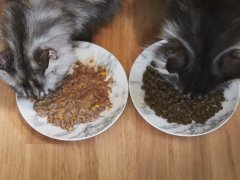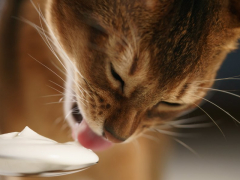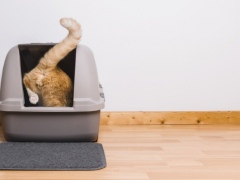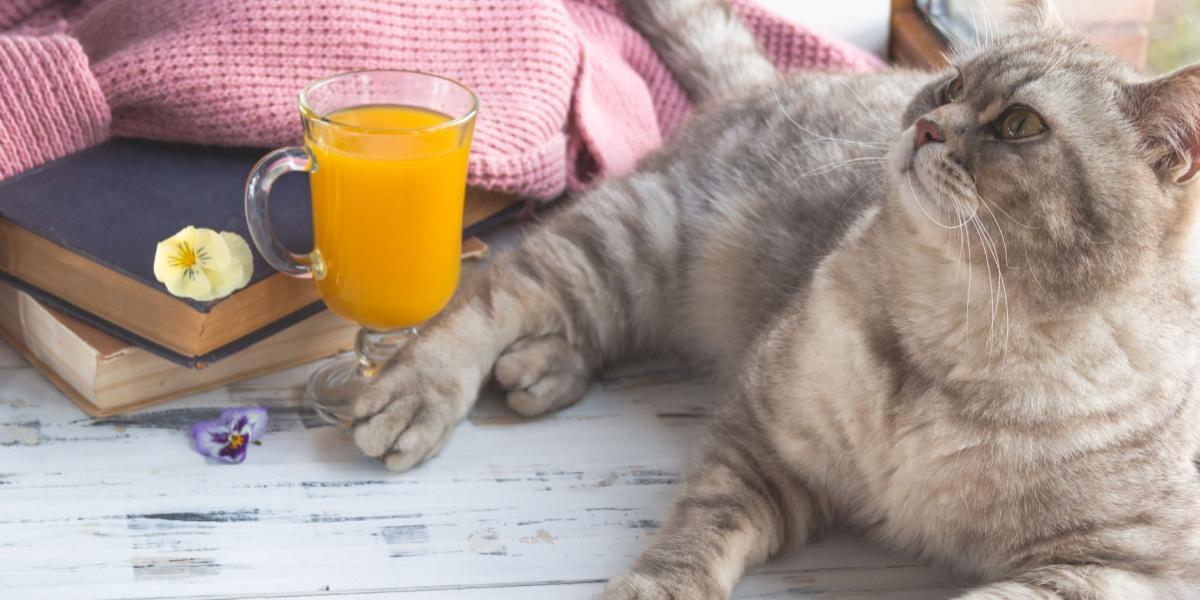
Orange juice is a common drink for humans, but is not suitable for cats
Orange juice is one of the most popular fruit juices. Most of us enjoy a refreshing glass of this beverage, especially paired with breakfast in the mornings. It has many health benefits, with high levels of vitamin C, potassium, folate, and antioxidants.
We know that it is great for people but what about cats? Can you share your morning orange juice with your beloved cat? Do they get the same benefits as we do? The short answer is no! Read on to find out why offering your cat orange juice is not good for your cat’s health.
Also Read: List of Foods Cats Can And Can Not Eat
Is Orange Juice Bad for Cats?
Orange juice contains citric acid, which gives the drink its tart and sour flavor. Ingesting citric acid can upset the digestive system in cats, leading to vomiting and diarrhea.
Orange juice also contains citrus essential oils, such as linalool and limonene. These can be toxic for cats. Cats lack a certain enzyme in their liver (glucuronyl transferase) which makes it more difficult for them to process and break down citrus oils. These oils are found in the highest amounts in orange peel, but are also in the fruit and therefore the juice.
They can upset a cat’s stomach and therefore also cause vomiting, diarrhea, and drooling. In larger quantities, they can affect the nervous system and we might see symptoms of citrus poisoning such as tremors and incoordination, or wobbliness.
Psoralens are also present in orange juice. These, as well as essential oils, are toxic to cats. Ingestion of psoralens is associated with the skin becoming more sensitive to sunlight and burning more easily.
You might be tempted to give your cat some orange juice to boost their vitamin C levels. However, unlike people, cats can produce their own vitamin C. If they are supplemented with vitamin C, they might end up with too much in their body.
The excess would then be broken down and excreted into the urine as a compound called oxalate. This then increases the risk of calcium oxalate stones forming, which can result in urinary issues.
How Often Can A Cat Have Orange Juice?
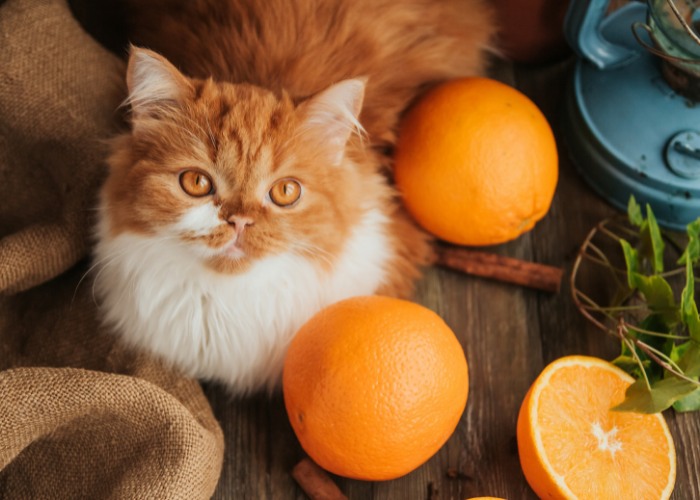
Oranges can be toxic to cats, especially the peel and the seeds.
Cats should not be given orange juice at all. Orange juice contains citric acid, essential oils, and psoralens, which can all be toxic to your cat. It is simply not worth the risk.
Are There Any Benefits To Giving A Cat Orange Juice?
There are no real benefits to giving your cat orange juice. They are obligate carnivores, which means they rely on eating meat to meet their nutritional requirements. Orange juice does not offer them any nutritional value. It is low in protein, which cats need plenty of for energy, and high in sugar, which can lead to obesity.
Also Read: Are Fruits And Vegetables Safe For Cats? What Every Cat Owner Should Know
Do Cats Like Orange Juice?
While we might find citrus scents, like orange, refreshing and energizing, the strong smell can overwhelm a cat’s sensitive nose. Most cats are usually repelled by the smell of citrus fruits and tend to keep well away from them. In fact, citrus spray and peel are often recommended as natural cat repellents!
So, we wouldn’t really expect cats to show an interest in orange juice. Even if they do, it’s unlikely they will drink enough to cause severe symptoms. This is good news as you won’t have to worry too much about them trying to steal some from you.
Of course, there are always exceptions so it’s best not to leave your glass of orange juice unattended.
How Much Orange Juice Can A Cat Have?

It is safest not to leave orange juice unattended around cats, as they can be very curious!
If your cat has sneakily stolen a few sips of your orange juice or if they’ve licked some off your fingers, they are unlikely to be affected by it. It is difficult to quantify exactly how much orange juice will cause problems, as this will also vary with each cat.
To be on the safe side, save the orange juice for yourself, and don’t offer any to your cat! If your cat has had some orange juice, monitor them closely and contact your veterinarian if you have any concerns. If your cat has eaten a decent amount of a citrus fruit, or is showing any of the common symptoms of citrus toxicity, contact your veterinarian immediately.

